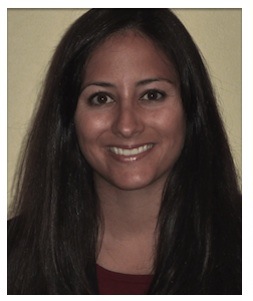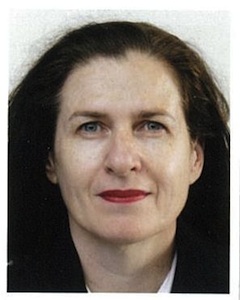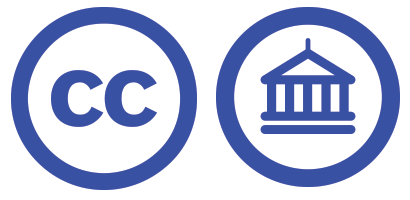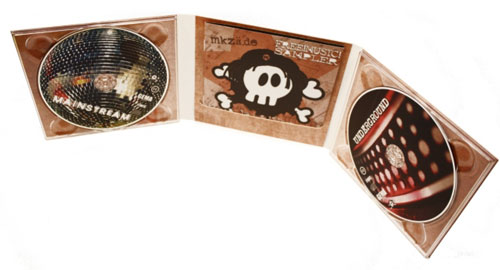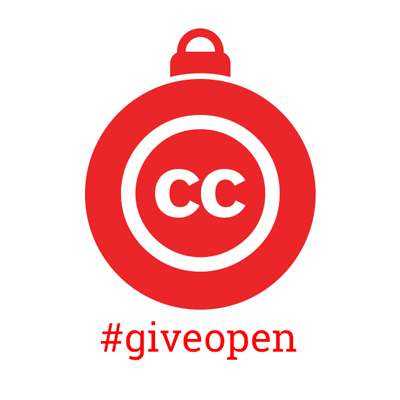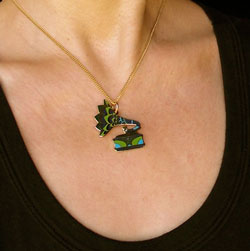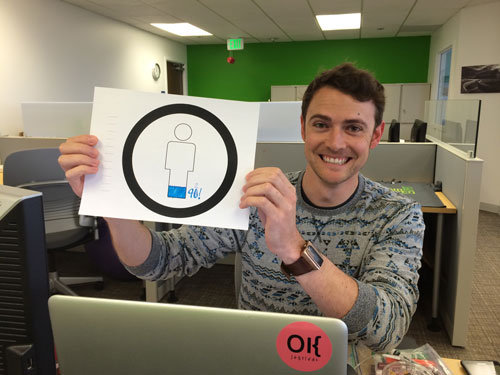Guest post: What’s behind the success of Copyright 4 Educators Australia?
mardi 10 décembre 2013 à 18:42The following is a guest post by Jessica Smith, National Copyright Officer for the National Copyright Unit of Australia. She ran the Copyright 4 Educators (AUS) course with Delia Browne as part of the School of Open’s second round of facilitated courses in 2013.
The School of Open is a community of volunteers focused on providing free education opportunities on the meaning, application, and impact of “openness” in the digital age and its benefit to creative endeavors, education, research, and more. Volunteers develop and run online courses, offline workshops, and real world training programs on topics such as Creative Commons licenses, open educational resources, and sharing creative works.
The National Copyright Unit (NCU) of Australia ran its second cycle of the School of Open’s Copyright 4 Educators (AUS) course in August. The course ran for seven weeks, with a two-week introduction period and five weeks of substantive group work. We took on 60 learners, with enrollments filling up in less than two days, plus a wait list of around 15 people. At the end of the course, we only had 3 drop-outs, a 95% retention rate!
On top of those stellar results, we also had very happy learners as well as great results in terms of the uptake and understanding of the information. We have an ongoing wait list for the course as well as teachers and librarians continuously enquiring about the course. We’re also in the process of obtaining accreditation for the course through larger teacher organizations so that it can be used to fulfill specific professional learning requirements of Australian educators.
We believe our course has succeeded for three reasons:
- We made it easy for the students to participate.
- The course was associated with the NCU, an official government division.
- We assigned small groups based on commonalities, such as profession and field.
1. Make it easy for the students to participate
Making it easy for students is of utmost importance in an online environment, especially if the course is targeted to people who may not be familiar with online learning. We know this may sound obvious, but it’s so important that it’s definitely worth mentioning and expounding on. If you don’t nail this, you’re not going to retain your students.
So how do you make it easy for the students? Have everything (eg, communication tools and assignment submission entrypoints) set up for them and support them to the nth degree. What this means: you have to put the time in before the course starts and you, as the course facilitator/organizer, must be very comfortable with the course layout and tools in order to be able to give ample support as well as troubleshoot when issues arise.
Tutorials for Tools
For our course, we had heaps of information on our P2PU course site (outlining essentially everything they’d need to get through the course), but we also created tutorials and sent out additional information through email on all the essential parts of the course (ie. using the discussion tool Disqus, submitting group assignments, leaving peer review, etc). We really wanted the students to feel supported and to answer questions and issues BEFORE they arose. It’s too easy to drop out of an online course, so we wanted to preemptively take care of as many issues as possible. We had one student state they were “very nervous and uncomfortable” to take an online course who later reported how great the course was set up and how easy it was in terms of knowing what to do and how to do it. It’s key students feel like this from the start of the course, or they won’t stick with it.
Tools we used
We used Google docs for our course. We had every group’s Google doc set up for every single week, and we linked to the docs from both the course on P2PU as well as in emails that we sent out every week. The weekly emails make it very clear what was expected of our learners as well as where to go to complete their tasks. See an example below:
It’s the last week already! You’ve all done a great job getting here. We’ve been very impressed with the calibre of all the groups’ work in this cycle. In Week 7, you’ll be using everything you’ve learnt throughout the course to help a peer.
This week you should:
*read the Week 7 Readings;
*collaborate with your group to complete Week 7’s assignment;
*post (ie by copying and pasting) your final group answer to your group’s google doc HERE by COB this Sunday, September 22nd;
*leave peer review for Week 7 by COB Tuesday following the assignment due date, September 24th;
*and remember you should also have your peer review for Week 3 finished by COB tomorrow Tuesday, September 17th.
Please note this assignment is only asking you to point to helpful resources – ie, you don’t actually have to answer the question – you simply need to demonstrate that you’re able to find, compile and share helpful copyright resources.
Peer Review
You will peer review the exact same groups every week. Just as a reminder see below:
* Group 1 will review Groups 2 and 3.
* Group 2 will review Groups 1 and 3.
* Group 3 will review Groups 1 and 2.
* [...]
Badges
Since you’ve all now completed Week 6’s assignment, you can apply for the Copyright Exceptions badge HERE.
For more information on P2PU badges, see HERE.
As always, if you have any questions or concerns, just let us know!
Following up
We also sent out individual group chase-ups the Monday following a Sunday due date as well as a chase-up Wednesday following the peer review due date. See below for an example of this:
It doesn’t look like you’ve done your peer review for Week 6. Remember this is a requirement of the course. Your group is responsible for leaving peer review for Groups 8 and 9. I can see your group has left feedback for 8 already, so only Group 9 to go!
Let me know if you have any questions or concerns. If you want to see some examples of peer review, you can take a look at some of the other groups’ docs. It doesn’t have to be anything long – just something to show you’ve had a look at the other groups’ work. If it works best for your group, you can also nominate one person per week to represent your group and do the peer review.
Please review Group 9 ASAP. We will leave our facilitator feedback on the docs this afternoon, and it would be most beneficial for you as well as the group you leave feedback for if your reviews were left before we post our comments.
The link to Week 6’s google folder is HERE.
Let me know if I can help in any way!
Its also very important to understand that the first two to three weeks are a bit rough for learners – they’re confused and they have lots of questions and issues. We received anywhere from 15 to 30 emails a week and at least five calls, asking general questions about the course, the platform, google docs, etc. We nearly always responded to these on the same day and offered as much support as needed. A quick response to a simple question can be the deciding factor between a learner getting frustrated and dropping out or being satisfied and feeling supported and staying in the course.
Onboarding
This initial confusion is also why we went with a two-week introduction period, and we think this really helps with the retention rate. It gave the learners a chance to ask questions, sort out their issues and concerns and get comfortable with the course, the platform, the collaboration tools, and their groups.
2. Associate a course with a known, respected entity
Our course was associated with the NCU of Australia, which is very well known and respected. We deal with teachers on a daily basis, and most of our NCU affiliated teachers/librarians were the first to sign up for the course and have been our biggest supporters and promoters.
In addition to past participants spreading the word, we promoted the course through our school connections in Australia – through teachers whom we’ve given advice, the Copyright Advisory Group (each State/Territory in Australia as well as each sector has a representative), teacher organizations, and our website (http://www.smartcopying.edu.au/) which is the official guide to copyright issues for Australian Schools and Technical and Further Education (TAFE) institutions. Once we did our initial promotional blitz, the promotion largely took off on its own, making its way onto numerous listservs and teacher associations that we didn’t previously know existed.
So the association helped with the initial promotion of the course, but we also believe the reputation of the NCU encouraged teachers to sign up for the course: it made teachers feel more comfortable asking questions/contacting us, it decreased the numbers of dropouts, and we also found that many employers, such as school deans, required their teaching staff to take the course.
Incorporating the course into NCU’s daily workload also allowed us to quickly and effectively respond to questions/issues with the course.
3. Arrange groups to encourage conversation and cohesiveness
Questionnaire
In the first week of the course, we only asked our learners to fill out a questionnaire and have a look around the course. With the information from the questionnaire, we created 15 groups of four. We also took group requests, which frequently came from teachers at the same school. If groups were not requested, we arranged groups based on school location, level and sector to encourage conversation and commonality between group members. In the second week of the course, we only asked our students to meet their group and to decide on how their group would collaborate. Group members got to know each other and supported each other over the course of the seven weeks, and we think this group cohesiveness really encouraged group members to stay committed to the group and the course (as well as have more fun!).
Peer support
As an example, we had one student who was going to drop out because she needed to have surgery in the third week of the course, and she would be unable to type for a week or two. She consulted us, and we told her to first discuss the problem with her group to see if they could work something out. She did this, and they became somewhat of a support group for her and they worked out that she would lead discussion in the weeks leading up to her surgery (which they mainly did via email) and then the weeks she couldn’t type she participated via a weekly Skype session with her group.
We’ve also been told by a number of groups that they all plan to keep in touch with each other to discuss any copyright questions and what’s going on in their classrooms/schools.
Conclusion
Overall, we believe the course was very successful. Not only because of the retention rate but also because people enjoyed it! They’re telling others about the course, they learnt the information, and if they ever have any questions or issues they now know where to find the information.
